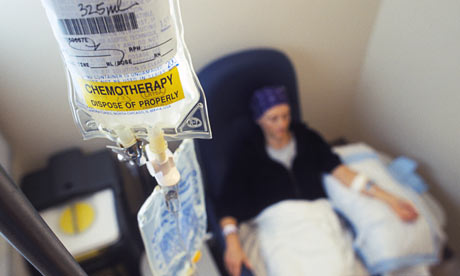
Fasting Before Chemotherapy
Written By: Dr. Adam McLeod, ND, BSc
There has been a major movement lately for cancer patients to fast before and after an infusion of chemotherapy. When first hearing this, it sounds dangerous to encourage a patient to fast when their body is already stressed with chemotherapy. Fasting before chemotherapy has been used safely in several clinical trials1,4. It turns out that there is a significant amount of scientific data to support this therapy when the patient is properly supervised. This is a very interesting shift in thinking because the conventional approach in the past has been encouraging patients to get as many nutrients into their body as possible.
There are a number of metabolic reasons why fasting may increase the effectiveness of chemotherapy while reducing the side effects2,3. Fasting triggers normal cells to enter into a protective mode. They rapidly become more efficient and this triggers a reduction in glucose and IGF-1 levels by more than 50%3. This rapid metabolic shift would be very difficult to achieve even with a very potent mixture of drugs. Cancer cells are unable to shift into this protective mode and this makes them more vulnerable to the chemotherapy than normal cells5. This is referred to as differential protection and it has the potential to transform conventional cancer care.
The length of fasting before chemotherapy varies significantly depending on which study that you look at. The most commonly recommended fasting period is 48 hours before chemotherapy and this continues until 24 hours after the chemotherapy infusion. During this fasting period ideally the patient should only have water. It should be as close to complete fasting as possible.
Although it is clearly uncomfortable not eating for a total of 72 hours, the research is indicating that this is a worthwhile sacrifice. The discomfort from hunger will actually decrease the severity of the side effects from the chemotherapy. It is also important to keep in mind that this starvation state is triggering a powerful metabolic shift in your cells that protects your cells while making the cancer cells more vulnerable to the chemotherapy.
As fasting before chemotherapy is further researched it is likely that other mechanisms will be discovered that explain this differential protection. Even without a fully defined biochemical mechanism for this protection, it is clear that fasting does make a substantial difference. Do not implement a fasting protocol before chemotherapy without the supervision of a qualified health professional. It is essential that you are monitored during this process because fasting is not safe for everyone.
If you are currently doing chemotherapy make sure that you contact a Naturopathic Physician who focuses on cancer care. There are many different naturopathic therapies which not only increase the effectiveness of the chemotherapy but they can act to reduce side effects from the chemotherapy. These natural approaches are safe to use with chemotherapy when they are used under the supervision of an experienced Naturopathic doctor. A Naturopathic Doctor that works with integrative cancer treatments will take the time to look at your case and help you effectively integrate these approaches into your program.
Dr. Adam McLeod is a Naturopathic Doctor (ND), BSc. (Hon) Molecular biology, First Nations Healer, Motivational Speaker and International Best Selling Author. He currently practices at his clinic in Vancouver, British Columbia where he focuses on integrative cancer care. https://www.yaletownnaturopathic.com
References:
1) Safdie, Fernando M., et al. “Fasting and cancer treatment in humans: A case series report.” Aging (Albany NY) 1.12 (2009): 988.
2) Raffaghello, Lizzia, et al. “Fasting and differential chemotherapy protection in patients.” Cell Cycle 9.22 (2010): 4474-6.
3) Lee, C., and V. D. Longo. “Fasting vs dietary restriction in cellular protection and cancer treatment: from model organisms to patients.” Oncogene 30.30 (2011): 3305-3316.
4) de Groot, S., et al. “Abstract P4-16-12: CARE: A pilot study of the effects of short-term fasting on tolerance to (neo) adjuvant chemotherapy in breast cancer patients.” Cancer Research 73.24 Supplement (2013): P4-16.
5) Laviano, Alessandro, and Filippo Rossi Fanelli. “Toxicity in chemotherapy—when less is more.” New England Journal of Medicine 366.24 (2012): 2319-2320.






Leave a Reply
You must be logged in to post a comment.